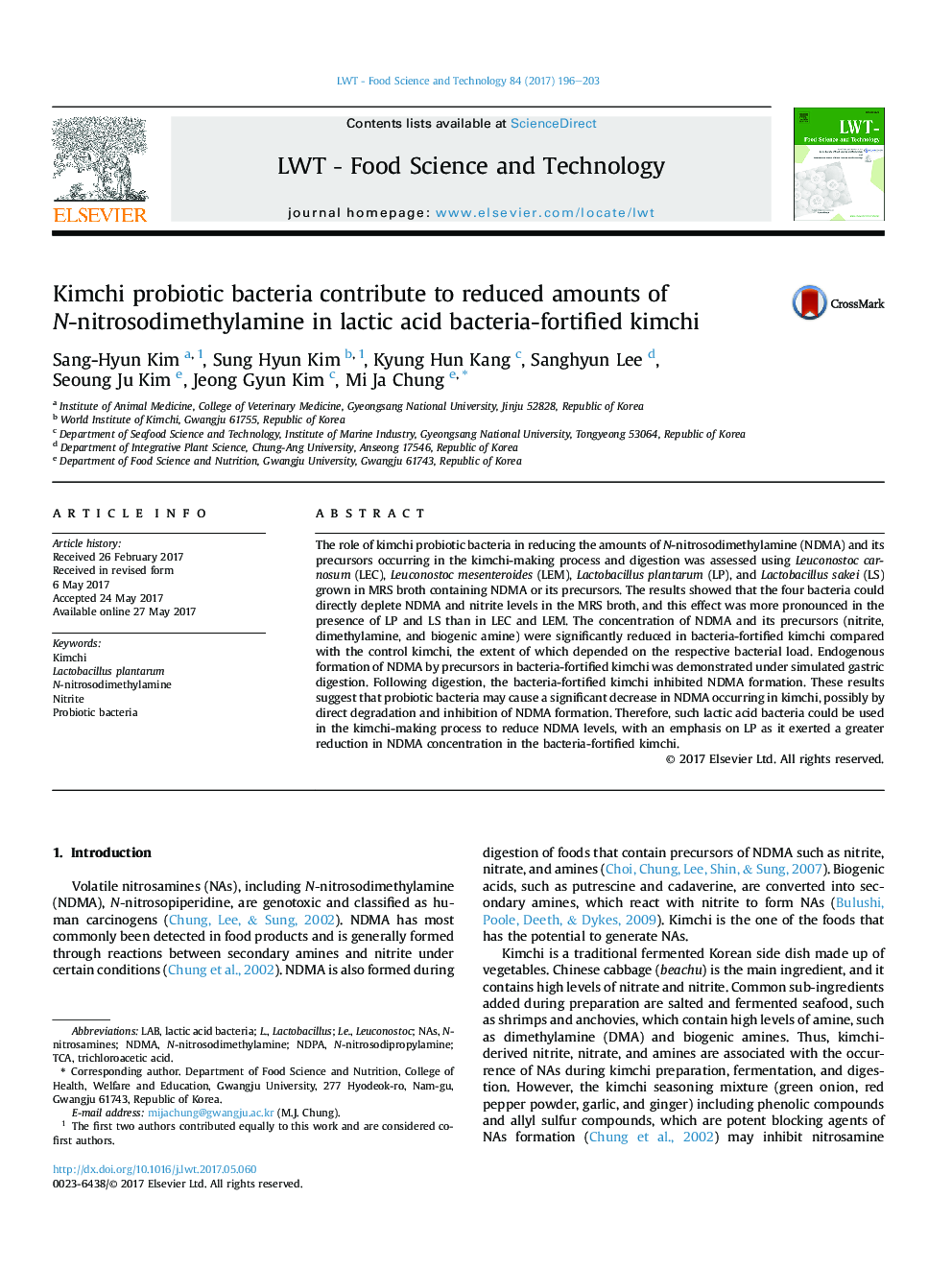| Article ID | Journal | Published Year | Pages | File Type |
|---|---|---|---|---|
| 5768932 | LWT - Food Science and Technology | 2017 | 8 Pages |
â¢Kimchi probiotic bacteria could directly deplete NDMA and nitrite levels.â¢Kimchi probiotic bacteria inhibited NDMA formation from DMA and nitrite.â¢NDMA and its precursor levels are decreased in bacteria-fortified kimchi.â¢Kimchi probiotic bacteria inhibited endogenous formation of NDMA.
The role of kimchi probiotic bacteria in reducing the amounts of N-nitrosodimethylamine (NDMA) and its precursors occurring in the kimchi-making process and digestion was assessed using Leuconostoc carnosum (LEC), Leuconostoc mesenteroides (LEM), Lactobacillus plantarum (LP), and Lactobacillus sakei (LS) grown in MRS broth containing NDMA or its precursors. The results showed that the four bacteria could directly deplete NDMA and nitrite levels in the MRS broth, and this effect was more pronounced in the presence of LP and LS than in LEC and LEM. The concentration of NDMA and its precursors (nitrite, dimethylamine, and biogenic amine) were significantly reduced in bacteria-fortified kimchi compared with the control kimchi, the extent of which depended on the respective bacterial load. Endogenous formation of NDMA by precursors in bacteria-fortified kimchi was demonstrated under simulated gastric digestion. Following digestion, the bacteria-fortified kimchi inhibited NDMA formation. These results suggest that probiotic bacteria may cause a significant decrease in NDMA occurring in kimchi, possibly by direct degradation and inhibition of NDMA formation. Therefore, such lactic acid bacteria could be used in the kimchi-making process to reduce NDMA levels, with an emphasis on LP as it exerted a greater reduction in NDMA concentration in the bacteria-fortified kimchi.
